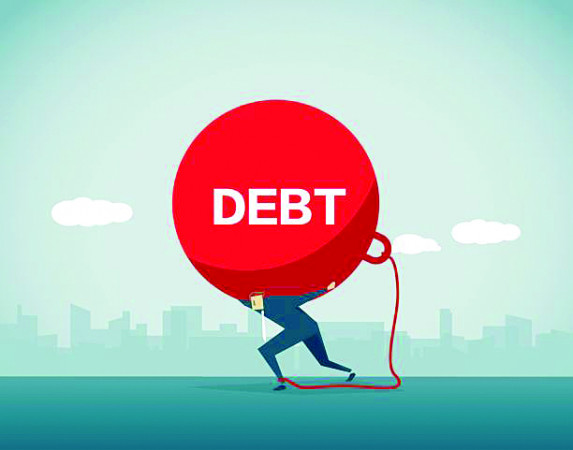Sorting local debt crisis will be good for economy

Kenyan borrowers are struggling to meet their credit obligations, as limited resources make it impossible to cover even basic needs, amid rising inflation but fears abound that a debt implosion is eminent.
Together with the rising cost of living, the recent leap in non-performing loans portfolio in Kenya’s banking sector signals trouble for the economy.
While the status is also being attributed to the ongoing global financial crisis that has led to local currency depreciating, the veneer of a deeply entrenched weak debt culture is also to blame for the state of affairs.
The immediate consequences include the increased seizure of property by auctioneers and debtors, who are also having tough times selling those assets, most of which were held as collateral for debt, especially when Covid-19 pandemic shocks held the world hostage.
Latest data from the Central Bank of Kenya (CBK) data reveals that the rate of non-performing loans (NPLs) increased to 14 per cent in February 2023 compared to 13.3 per cent in December 2022, in what is a pointer to the deteriorating debt situation in Kenya.
Further, the regulator estimates that gross non-performing loans stood at Sh161 billion, whereas both the bad loans stock showed an increase when compared to 2022.
The state of affairs has seen lenders and auctioneers turning to repeat auctions of seized property that had been seized, which shows a glut of repossessed collateral countrywide.
Unfortunately, most of the collateral has shed value over time as appetite for the properties decrease, and dwindling economic conditions makes it worse.This piques one’s curiosity on the State of Kenya’s larger debt estimated at Sh9.16 trillion by January. Out of this debt, Sh4.5 trillion is local, while Sh4.68 is external.
Coming at a time when politicians are busy castigating each other as if we are in a campaign period, eroding investor confidence, and spoiling for war. Questions abound whether the State which is also struggling from debt can help cushion mwananchi from a possible debt implosion.
Ofcourse, there is the Hustlers Fund which offers another avenue for more debt, but with the State itself embroiled in a struggle to sort debt obligations, the ride ahead will be tough, but the answer lies in quickly propelling economic essentials to return full swing.
Overall, addressing the problem of bad loans in Kenya requires a comprehensive approach that includes improving the economic environment, strengthening the regulatory framework, and promoting a culture of responsible borrowing for both the government and individuals
To tackle the york of debt must start by first ensuring availability of jobs, this after massive layoffs in the last couple of years, which goes back to the need for government to ensure that investors have the right environment to create jobs. Further, while the high lending rates in Kenya are intended to cushion the country from inflation, it has also made it difficult for borrowers to access credit to spur activites that can enable them repay their loans. The high rates also mean that borrowers are paying more in interest and reducing their disposable income
More importantly, a somehow weak credit culture which has also contributed to the increase in bad loans must be dealt with.
Despite regulatory efforts to cushion Kenyans, many borrowers still do not understand the terms and conditions of their loans, leading to defaults and delinquencies that have seen a surge in bad debt.
It is about time to start dealing with rogue lenders and shylocks who have perfected the art of cheating by taking advantage of limited financial literacy.
In dealing with the debt situation, maybe, the State will be doing itself a favour by ensuring they reduce bad loans in the country because it will all come back to help spur the economy. A healthy economy will provide taxes for the government to help it pay for its loans.
— The writer is the Business Editor, People Daily












